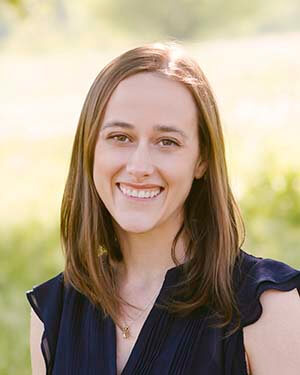Tori Olds, Ph.D.

Tori Olds, Ph.D.
Licensed Psychologist
Individual Psychologist
Thank you for learning more about me!
While I’m not currently accepting new clients, I strongly encourage you to connect with my scheduling team so they can match you with someone like me.
As a psychologist my goal is to help clients learn to be with themselves, and to be with others, in a healthier, more fulfilling way. My approach is very engaging and experiential, drawing on mindfulness-based approaches like AEDP, PACT, and Somatic Experiencing. I typically guide clients in slowing down and “being with” themselves more fully and without shame. I try to template this level of attentiveness through my own emotional engagement and respect for my clients and their experience. In this way, clients and I can collaborate in an atmosphere of openness and safety to address whatever is on their hearts or minds.
Another word for this process of “being with” that I described is mindfulness. Research has shown that learning how to hold a mindful awareness of one’s emotions as they are experienced in the body can facilitate emotional regulation (stability), increase one’s sense of meaning, and improve one’s ability to have healthy relationships. Learning how to hold compassionate awareness of one’s experience as it unfolds is a key ingredient to letting go of shame, discovering one’s self more deeply, and becoming more able to move through daily stresses and emotions without getting stuck. As a psychologist I have also found that developing self-compassion opens the way for greater intimacy with one’s self, which in turn makes it easier to be intimately connected with others. I therefore believe it is important to address feelings of self-judgment and shame through gaining insight into the role these “critical voices” play and through fostering deeper levels of self-respect.
For a more in-depth description of the approaches I use as a psychologist, see: How Therapy Works (to change the brain), by Tori Olds, Ph.D. Or, if you are interested in the science of the brain and mind, here is a video I did which describes how the brain can become chronically stuck in a more “surviving” mode, and how we can move it into a “thriving” mode through self-compassion, mindfulness, or even therapy.
Group & Relationship Psychologist
Group Therapy – Undoing Shame and Aloneness while Improving Mood
As stated, I believe that how one relates to one’s experiences and how one brings this experience into relationship with others is a key component in emotional health. As a psychologist I therefore often encourage clients to engage in group therapy alongside, or even in place of, individual counseling. Group therapy is uniquely beneficial in helping individuals understand their relational patterns and giving them an opportunity to practice new ways of relating (both to themselves and to others). Group can be a safe environment in which to explore one’s self and one’s reactions to other people, as well as receive feedback and support. Group therapy clients receive insight into themselves and experience the healing that comes through connection with others. Seeing that we are not alone in our struggles is also a powerful way to undo shame.
Relationship Psychologist
The purpose of couples therapy is to help the relationship become a space that is not only livable, but deeply safe, healing, and strengthening to each partner. Learning to work through emotions in a respectful, caring manner is not only helpful to the relationship, but provides a source of growth and healing for both members. For this reason I believe that couples therapy should be considered for anyone seeking therapy (assuming they are in a committed relationship). Often more progress is made when the healing of either partner can become a joint endeavor. With the help of a psychologist, partners can learn to manage each other’s difficult states and offer correct support, thereby bringing out the best in each person.
I have completed three years of intensive training under Dr. Stan Tatkin, the relationship psychologist who developed a Psychobiological Approach to Couples Therapy (PACT). The PACT approach helps partners develop an understanding of, attunement to, and ability to deal with each others’ brain states–states such as over-arousal, emotional flooding, fight, flight, shame, or shut-down/collapse. As a psychologist I try to empower partners to better navigate these states through active, experiential work that is focused on moment-by-moment tracking of attachment dynamics.
I recommend couples read relationship psychologist Stan Tatkin’s book, Wired for Love. Perhaps even better is his CD set, Your Brain on Love. You can click this link to watch, listen, or read interviews with Tatkin on this approach.
Somatic Experiencing
Somatic experiencing is a form of therapy developed specifically for working both with tradition trauma, as well as more chronic forms of stress such as emotional neglect during childhood. Somatic experiencing helps people work through harmful past experiences in a slow, “titrated” manner that is gentle and empowering. Somatic experiencing uses awareness of the body’s responses such as shutting down, becoming agitated, or other forms of fight/flight/freeze, and uses techniques such as grounding and mindfulness to facilitate a more peaceful, vital inner state. I have completed 30 days of training in somatic experiencing and enjoy using it in my work, even with my clients who do not present with trauma. Somatic experiencing is often useful for people presenting with symptoms such as tiredness, overwhelm, or lack of focus or passion. I integrate Somatic Experiencing with other forms of emotion-focused therapies like AEDP.
Training Therapists
As a relationship psychologist, I love the relational and deeply-connecting aspects of our work. I truly enjoy training other clinicians in the application of experiential approaches to psychotherapy. I love teaching how to integrate techniques from approaches such as AEDP and somatic experiencing in working with emotion in a present-focused and body-oriented manner. I lead a weekly training group called Minding the Heart, in which my mom, Sydnor Sikes, joins us every fourth session usually to lead a more experiential component, such as working to undo shame, etc. (more below). I also lead a smaller, monthly Sunday 3-hour training group which focuses on more advanced skills, role-playing, and case consultation. If you’d like to know more about these, or my approach to supervision, please let me know.
Minding the Heart is a weekly 14-session training group which focuses on topics such as mindfulness and interpersonal neurobiology, trauma work, attunement training, working with defenses and emotion, tracking the body, attachment in couples work, and relinquishing shame. Sydnor and I draw on our training in AEDP, Somatic Experiencing, SCT, Tatkin’s couples work (PACT), and object relations theory. The meetings are didactic a well as experiential, with discussion, demonstrations, and case consultation. Tori and Sydnor will be beginning another group in the Spring. If you are interested in training with us, please feel free to contact me.
Testimonials
Background
Before becoming a psychologist I attended a small liberal-arts college in Vermont, Middlebury College, where I majored in modern dance and English. I received my Ph.D. in Counseling Psychology from Texas A&M University. My husband, Glenn, is also a psychologist. Beyond this shared interest, we enjoy spending time in nature and “care-taking” the land we own in Vermont. I also enjoy singing and song-writing and engage in meditation. I received 3 years of training in holistic healing at the Jaffe Institute of Spiritual and Medical Healing. Here is a song I wrote that I think captures my desire to help people move past shame and into their inner worlds.
I have also served on the board of an organization called Austin In Connection that fosters “healthy relationships through the integration of emerging science and practice.” Here is the description for a talk I gave for their Year of Conversations series and links to the video.
Turning Inward: Connecting to our Clients’ Inner Worlds with Gentleness, Patience, and an Invitation Toward Embodiment
Psychology, spirituality and creativity share many common threads in their attempt to map the inner world and honor both the pain and beauty found there. This evening we will focus specifically on the beauty—the unique qualities and resources that emerge naturally from a person’s heart. We will attempt to deepen our understanding of “the internal” and contemplate the doorways we might use as we approach the precious and unique landscapes within ourselves and our clients–and thereby move from shame to self worth. These doorways include gentleness, patience, and a persistent (even adoring) focus upon the client’s deeper self as discovered through sensation, imagery, and subtle knowings. Because creative expression can also be a doorway, Tori will bring her guitar and share a few songs meant to capture the experience of opening one’s inner world and meeting the self that lives there.
